Economy
/
October 15, 2025
The administration’s decision to fast-track a bunch of changes to food stamps—including new work requirements—is as stupid as it is cruel.

Donald Trump, joined by Republican lawmakers, signs the One Big Beautiful Bill Act into law.
(Samuel Corum / Getty Images)
Donald Trump and the Republican Party have long been at war with poor people. It’s a weird enemy for the allegedly Christian leaders of the white wing to pick, but I guess MAGA Jesus is only capable of turning bread into bullets. In July, Trump’s Dumb Cruel Bill cut over $1 trillion from Medicaid, the Children’s Health Insurance Program (CHIP), and the Supplemental Nutrition Assistance Program (SNAP).
The Medicaid fight makes consistent headlines, with noted “woke” empath—Marjorie Taylor Greene—regularly criticizing her own party for taking away people’s healthcare. The fight over food stamps garners less attention.
SNAP is the current iteration of the Food Stamp program, which first came into being during the Great Depression, was made permanent in 1964, and went nationwide in 1974. Almost ever since, it’s faced attacks—and not just from Republicans. In 1996, neoliberal Bill Clinton announced the “end of welfare as we know it”—which just meant inflicting harsh new work requirements on people in need of government assistance, including food stamps—as he triangulated away the Democratic Party’s soul. Making hungry people performatively dance for their supper is apparently a bipartisan fascination.
The most recent attack came this summer, when Trump and his ex-bestie Elon Musk decided to shrink the country’s social safety net even further by cutting food and healthcare benefits to impoverished Americans. Trump’s changes to the SNAP program are nasty and myriad (yep, he’s cutting off refugees)—but I want to focus on the even stricter “work requirements” he and the well-fed dauphins who run Congress put in place. Among other petty cruelties, veterans, people who are homeless, and young adults transitioning out of foster care are now required to work in exchange for their meager food-stamp allowance. So are older people, younger people with older kids, and more.
The pain of these changes was not immediately felt—but it’s about to be. Twelve states and territories had previously gotten exemptions from the federal government that allowed them to avoid enforcing many of the work requirements. These states, which include New York, where I live, had until February of next year to implement Trump’s demands. But on October 3, the Trump administration simply changed its mind and rescinded the waivers. New York now has to implement the work requirements by November 1. That jeopardizes the food resources of 3 million New Yorkers who rely on the assistance.
It’s hard to overstate how harmful this is. Over 42 million people receive some form of SNAP assistance. Those living in states that previously had waivers account for 36.5 million of those recipients. All those people could now be at risk of losing their benefits. The (Republican-controlled) Congressional Budget Office estimates that at least 4 million people will lose all or part of their SNAP benefits once the changes go into effect, but we will never know the true numbers, because the Trump administration canceled the annual reporting on food insecurity that we use to track the numbers of people who need assistance. Like walking past a homeless person who asks you for change on the subway, the Trump administration wants us to pretend that these people aren’t even here. They want us to be blind, deaf, and dumb to their suffering.
Current Issue

Whatever the real number is, it’s unconscionable. Many of those people are already about to face the toughest part of their year—winter—and now, suddenly, they will not know where their next meal is coming from. If our government were run by Marie Antoinette, it wouldn’t be as callous.
Thanks to our long, bipartisan, embarrassing history of cruelty toward the needy, we know one thing about work requirements: They don’t work. First of all, most working-age people on SNAP already work. This is a simple fact that consistently gets lost or ignored every time this issue comes up. Most of the adults work, but they work unstable or part-time or simply poorly paid jobs that cannot cover their food needs.
All work requirements do is increase the paperwork necessary to get the benefit, and that means fewer people will be able to access the assistance they need even though they meet the work requirements. It’s not like people on SNAP are likely to have access to a personal assistant or a stay-at-home spouse or a lawyer or a CPA or anybody at all who is able to help them navigate through all the red tape. And it’s not like they have a lot of extra time on their hands, during business hours, to sit on the phone or show up to the government office because, you know, they’re working. Sometimes they’re working jobs that are somewhat reluctant to provide the kind of employment verification the government might be looking for. Sometimes they’re working jobs that don’t give them a lot of time to sit on hold with a government agency.
Moreover, focusing on the adult working requirements misses the fact that nearly two-thirds of the people who get food through SNAP are children. The callous attitude people in this country take toward the reality that the people who benefit most from food stamps are kids would make characters in a Charles Dickens novel blush. “I’m sorry, Tiny Tim, but your dad didn’t spend 80 hours this month begging Scrooge for a job, so you can eat your freaking crutches for all I care.”
I’m focusing on the working poor because they make up the majority of people who receive food stamps. But I also feel compelled to defend what Alfie P. Doolittle would call the “undeserving” poor. Regardless of what you think about any individual person, food assistance should not be predicated on meeting your personal definition of deserving. People shouldn’t have to perform feats of social worth to get food; in our incredibly wealthy society, people should just get food. This wasn’t a controversial position in ancient Rome, and it certainly shouldn’t be one in modern America.
Of course, this country’s war against the poor does not stop at food stamps. In addition to cutting Medicaid and CHIP, the Trump administration is also covertly cutting Social Security Disability Benefits. Over 8 million people receive Social Security Disability Insurance (SSDI) checks. SSDI assistance is available to people with disabilities, regardless of age, but Trump is trying to change the eligibility requirements so that a person’s age is not taken into account when assessing their ability to find another job. I don’t think I’m being “ageist” to say that telling a 60-year-old grandpa to “learn to code, lmao” is not really a practical idea, but that’s pretty much where we are.
Popular
“swipe left below to view more authors”Swipe →
For those who need a more selfish reason to defend these programs, you should know that SNAP and SSDI make up part of the safety net for the whole economy in times of recession. When people who are out of work can still buy necessities, like groceries, it props up the businesses who sell those goods, even in times when consumer spending is at a premium. Public benefit programs create a floor that keeps local economies going when whatever bubble we happen to be in at the time bursts.
What’s maddening is that neither Trump, MAGA, mainline Republicans, or some Democrats actually want to do what is necessary so that people don’t have to turn to food assistance. They don’t want to address the underlying, structural factors. They don’t want to address food deserts. They don’t want to provide free childcare. They don’t want to raise wages so that people who have jobs can afford food. They just want to kick people and their children off of welfare, and lie in order to blame the hungry for their suffering. Hunger is a solvable problem. It’s a political problem, not a scarcity problem. We have enough food; we don’t have the political will to get the food to the people who need it.
This Thanksgiving, millions of people will go hungry because Trump wants them to. Clinton wanted them to, before that. We have facts and figures proving that work requirements result in people who are working being denied the food assistance they need. Yet there are still people in both parties who think they are a good idea.
History tells us that when hardworking people don’t have enough to eat, governments fall. Maybe that’s the only way for this to end.
More from The Nation
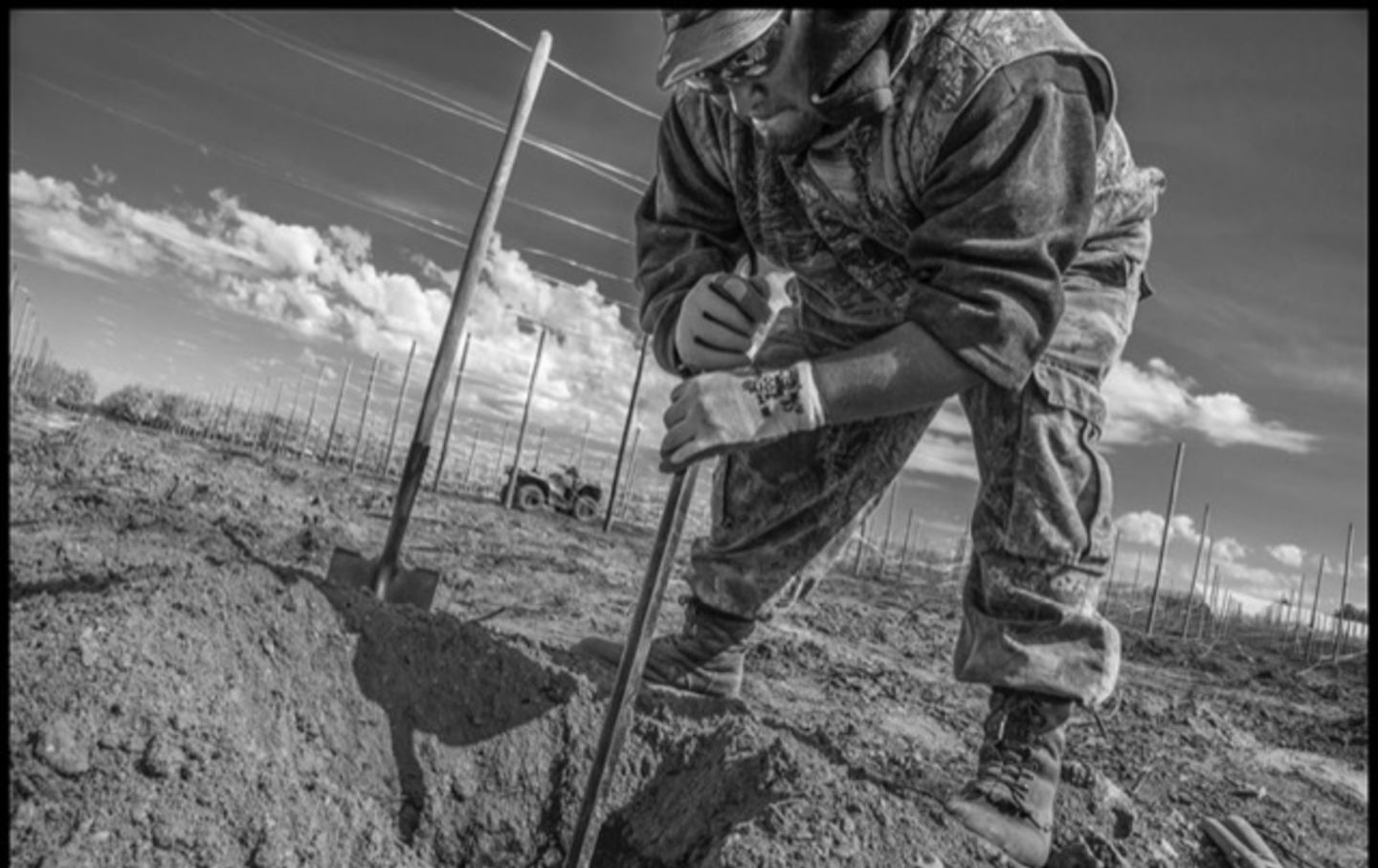
At the end of the season, he cuts wages of 400,000 workers by a third.
David Bacon
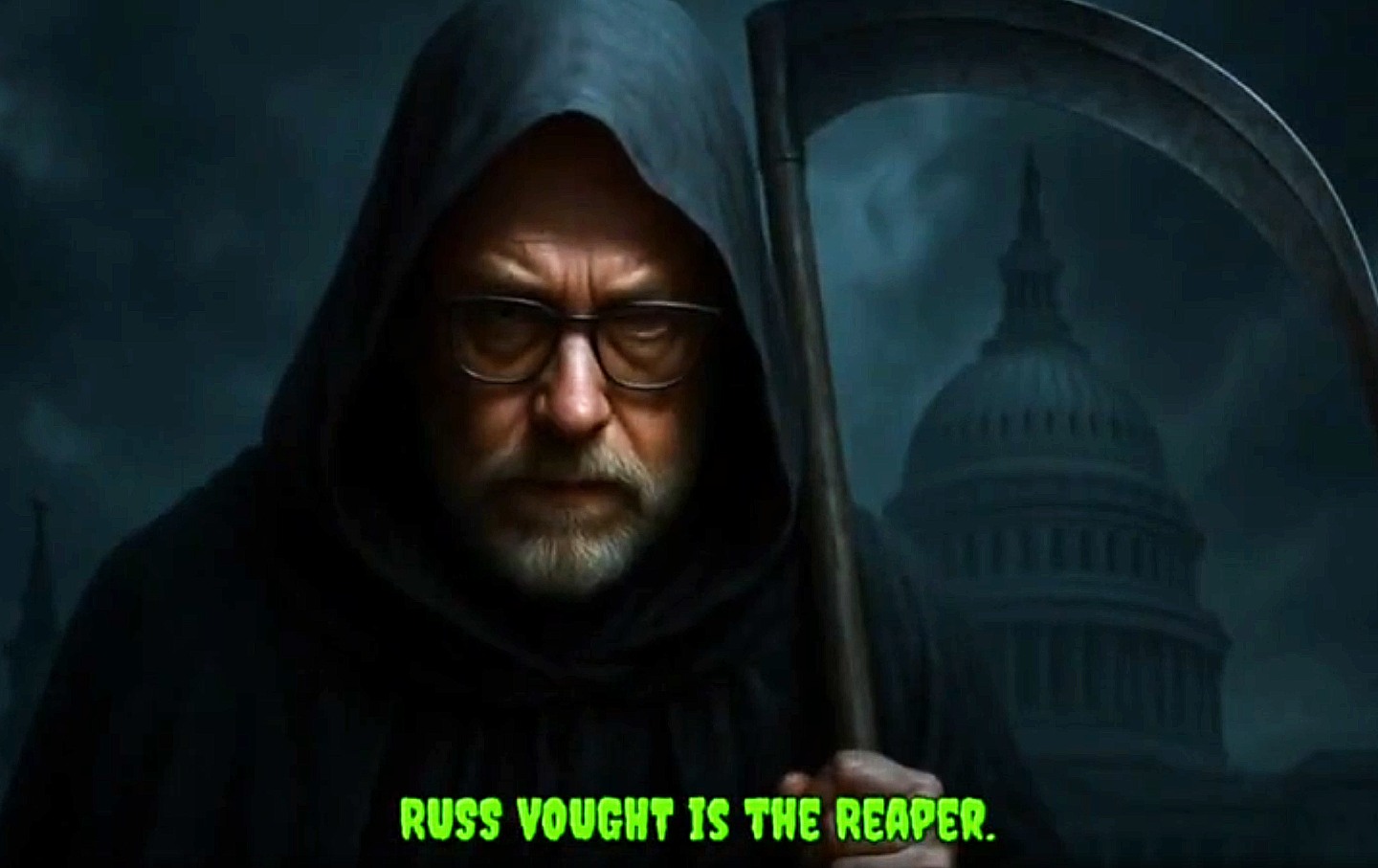
Trump’s OMB director has suggested he’ll institute mass firings and agency closures, but no one in the White House seems to grasp the economic impact of such moves.
Max B. Sawicky
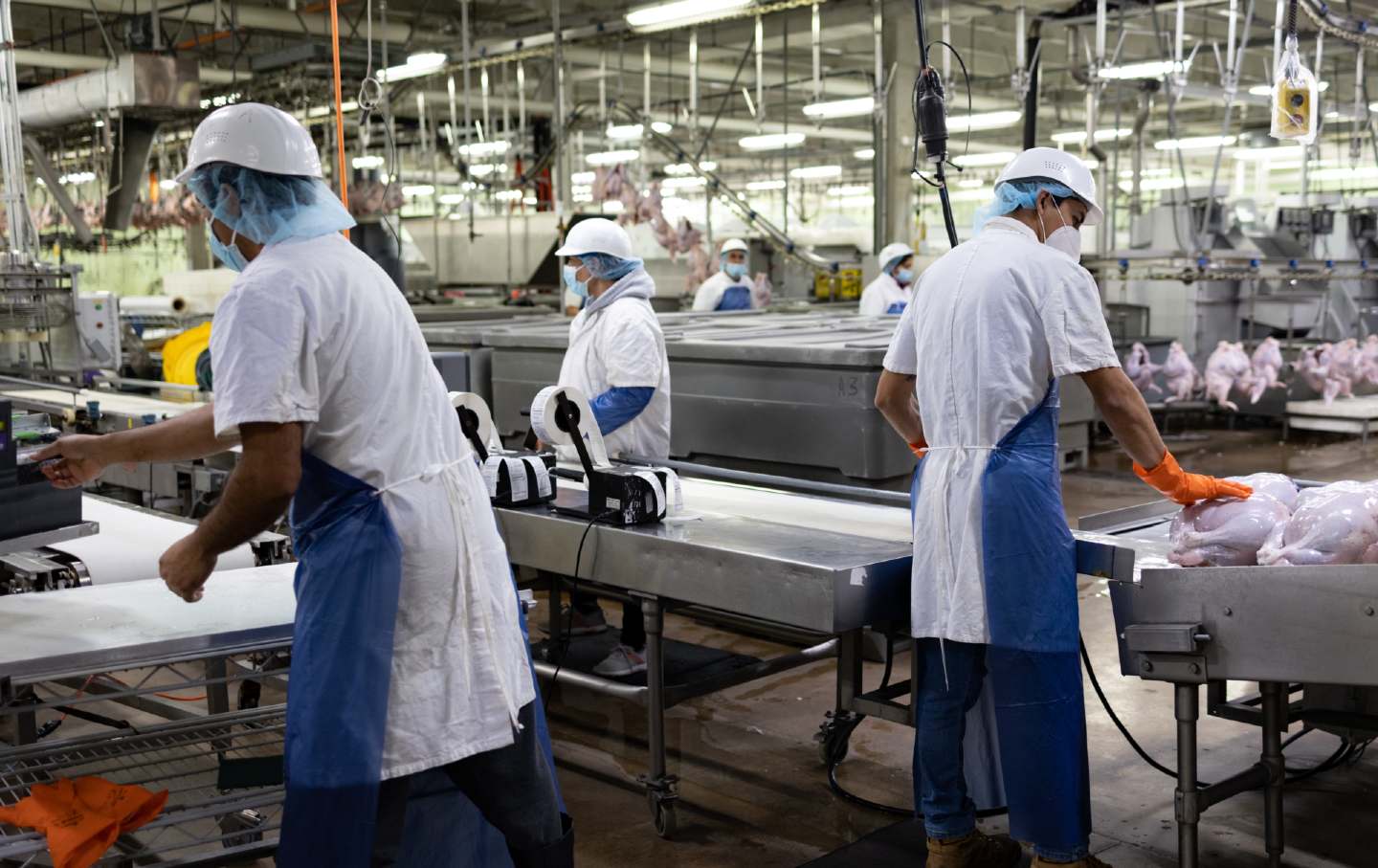
The people who do the dirty work of killing and processing animals hold up our food system. Trump is putting them in danger.
Alice Driver
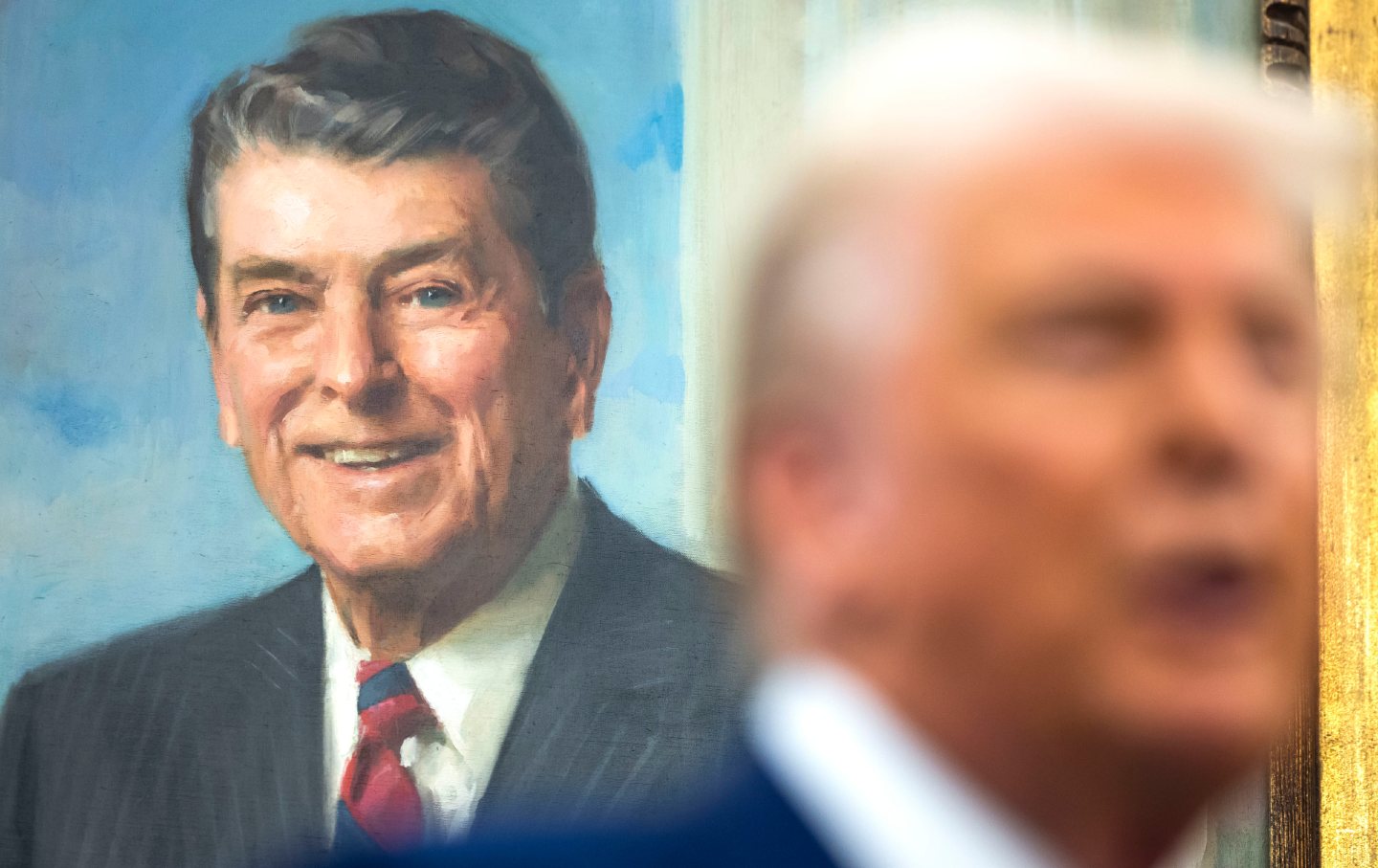
In contrast with the now sober-seeming Reaganites, Trump has taken credit for the economy from day one.
James K. Galbraith
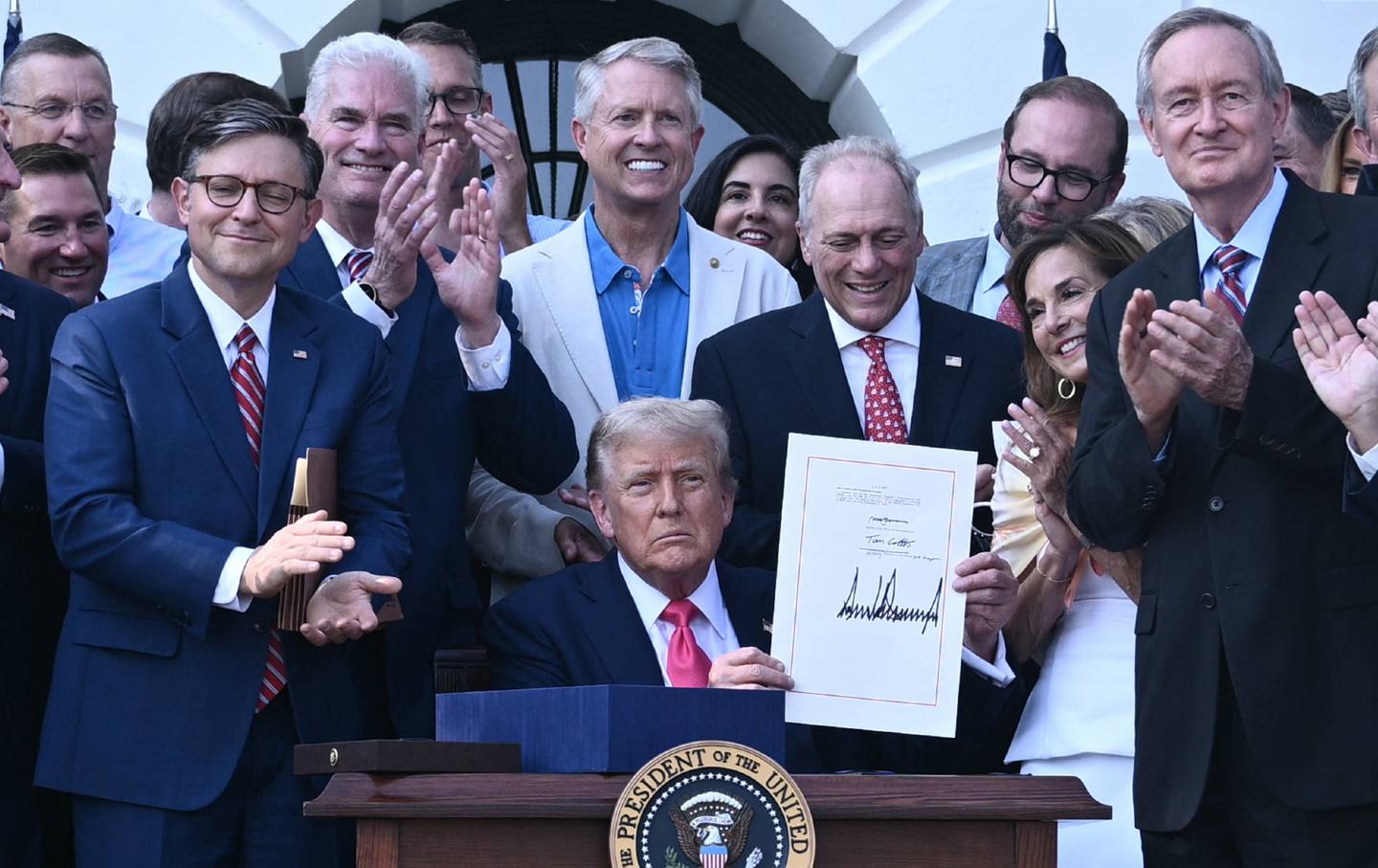
When Trump talks of turning the economy around, he speaks the truth—he just gets the direction of change wrong.
Dean Baker
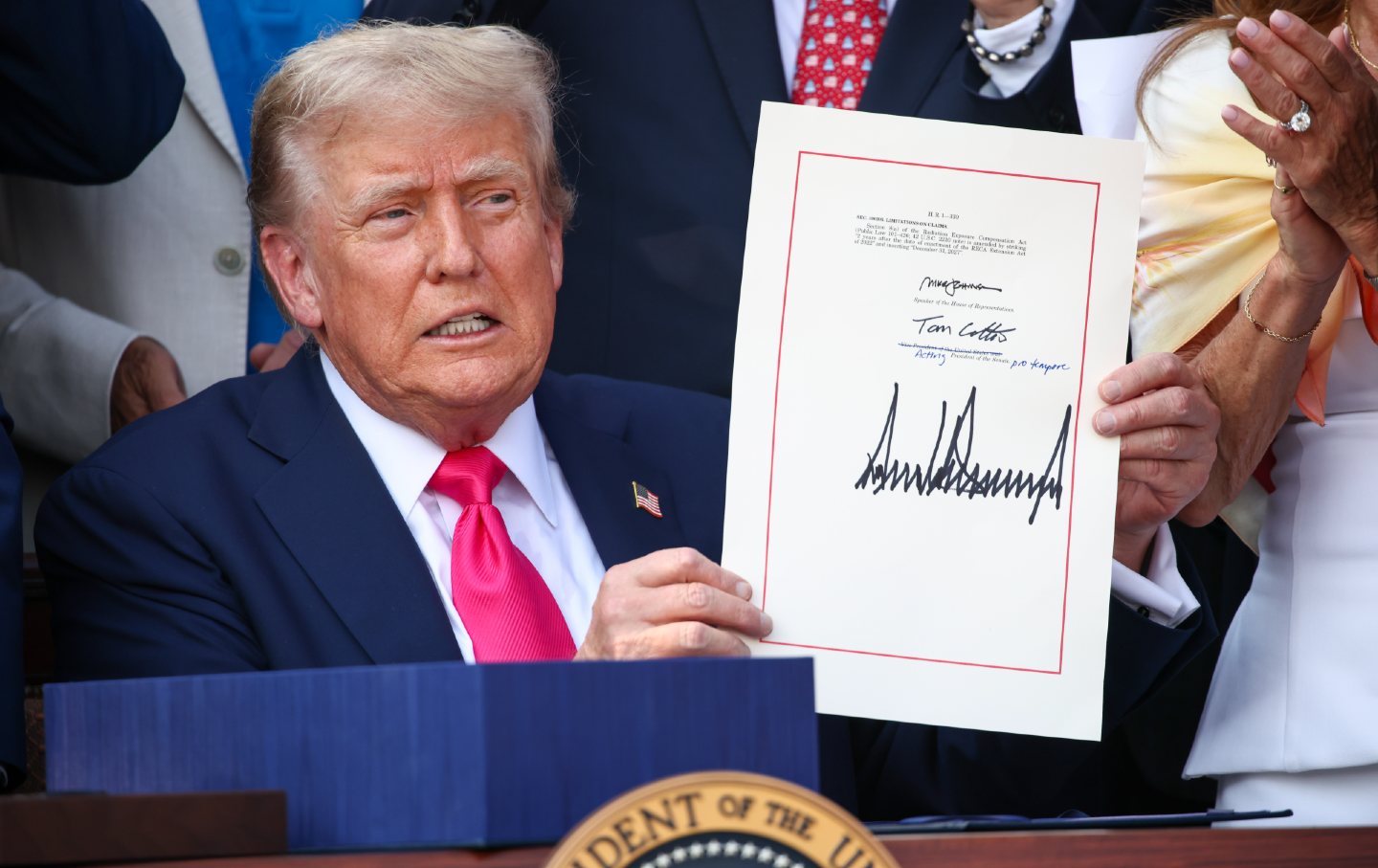
America is being hollowed out by an extractive economy.
Corbin Trent


